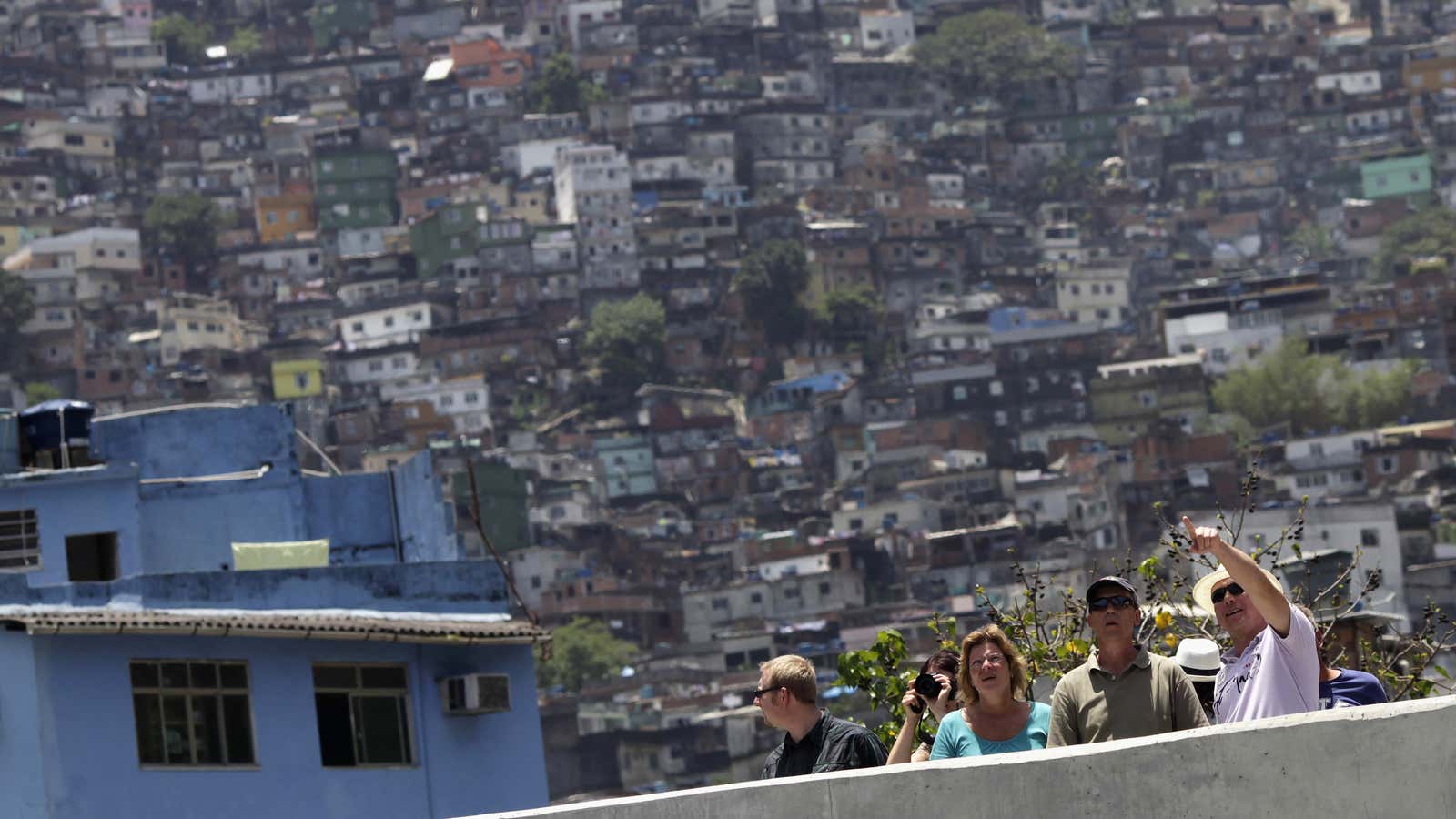As the 2016 Olympics near, officials in Rio de Janeiro are considering how the city’s poorest residents can profit from the horde of tourists expected for the games—without feeling totally exploited by them.
Rio’s favelas, shantytowns perched on the city’s hills, have become popular sightseeing destinations now that the government’s controversial pacification program has reduced crime and violence that have long plagued these neighborhoods.
Critics call it slum tourism, a voyeuristic look at how the less fortunate live, while supporters say it’s a way to promote cultural understanding and stimulate the local economy. What’s agreed is that it is a booming business: Roughly 40,000 tourists visit the favelas each year, according to estimates by Tourism Concern, a UK-based nonprofit that advocates for fair and respectful tourism.
The Olympics are expected to bring in more visitors. Residents and tourism companies are even starting to book rooms within the favelas, which offer some of Rio’s most spectacular views.
But the influx of camera-toting foreigners, particularly those traveling through the favelas in jeep tours, has irked some locals who say poverty shouldn’t be sold as a tourist attraction. That sentiment is captured—rather crudely—in this video by the comedy group Porta dos Fundos.
A new bill (link in Portuguese) being debated by the city council calls for formally designating favelas as “areas of special tourism interest” in order to regulate how tour companies operate there. The proposal includes getting input from locals on where visitors should go, as well as promoting “community-based tourism” that benefits the local population.
The bill, which was filed by councilman Célio Lupparelli, aims to curb the kind of “safari tourism” in which visitors are taken through the favela “to see misery and disgrace, and leave without any form of interaction with the local culture,” he told community news site Viva Favela (link in Portuguese) last month. The city council is expected to vote on it sometime in the first half of 2016.
Some tour companies point out in their promotional materials that they use local guides and take pains to be respectful of the communities they visit, bringing economic development along the way. But according to a 2013 analysis by Fabian Frenzel, a University of Leicester lecturer who has studied the issue, slum tourism is not a big enough industry to have any significant economic benefit (pdf, p. 123) locally.
Mark Watson, Tourism Concern’s executive director, says favela tourism can be a positive experience for both visitors and locals, even if it doesn’t result in a windfall for the community. The key is to give residents a say on what kind of tourism they want, as the Rio bill proposes, instead of imposing it on them.
But that’s not something that is easily achieved, even if the bill passes. Watson tells Quartz, “The practicalities of trying to enforce that law become almost impossible.”




